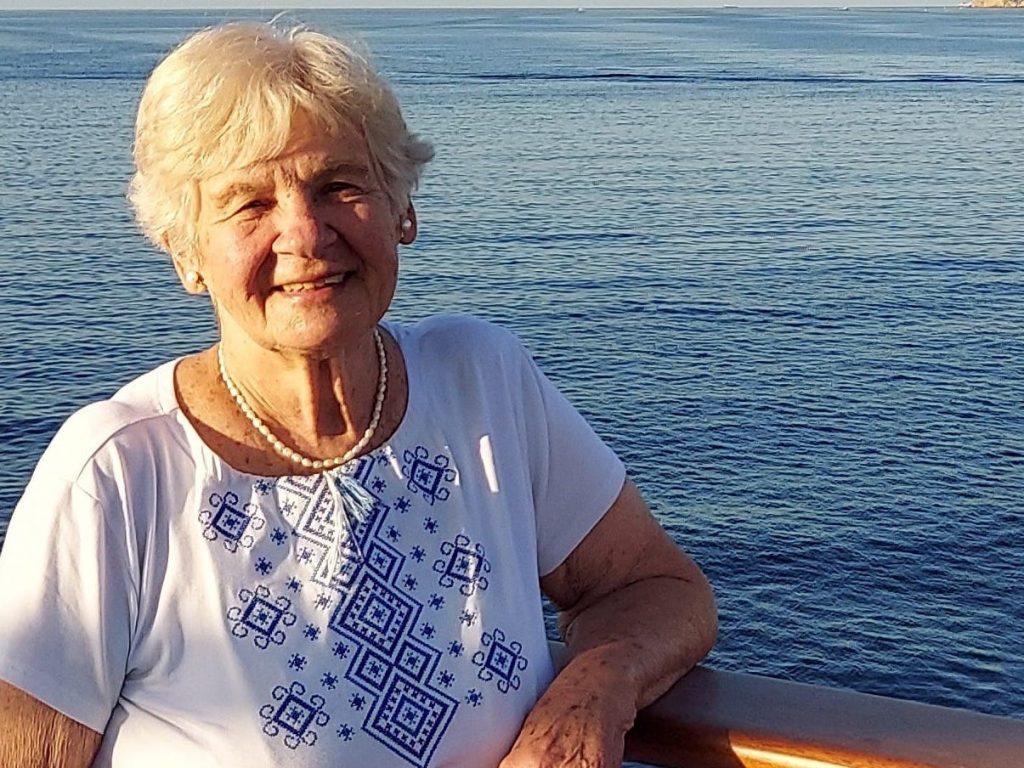- A woman in her seventies with terminal cancer took "magic" mushrooms, and says it eased her depression.
- Kathleen Kral also processed a miscarriage she had in her thirties during her trip.
- Scientists are studying whether "magic" mushrooms can treat depression and other mental illnesses.
A woman in her seventies with terminal cancer said a "magic" mushroom trip helped alleviate her depression and process a miscarriage from her thirties.
Kathleen Kral, a retired English teacher, was diagnosed with cancer three years ago, which worsened her depression.
"I'm grounded in my Catholic faith, but I think that I tended to look at the negative side of life. Cancer diagnosis has made it much worse," she told journalist Michael Pollan in the Netflix documentary "How to Change Your Mind," which explores the potential of psychedelic drugs to treat severe mental and physical health conditions, including depression.
Psilocybin, the psychoactive ingredient in "magic" mushrooms, is illegal in most countries, but some are starting to recognize its potential to relieve anxiety and depression for people with terminal cancer. In Canada, for example, such patients can access a synthetic version of the drug from a licensed dealer, but the process to get approval can be lengthy.
Despite some friends warning her against it, Kral was adamant that she wanted to take the drug, and volunteered for a clinical trial.
According to Tina Beattie, a former professor of Catholic studies at the University of Roehampton, UK, drugs that are acquired legally aren't morally prohibited for Catholics.
Dr. Manish Agrawal, an oncologist and researcher in Maryland involved in the clinical trial that Kral took part in, said in "How to Change Your Mind" that emotional and psychological distress impacts cancer patients' quality of life "probably more" than physical symptoms.
"The depression, if it could be alleviated, why not try it?" Kral said.
'I thought the waves were cancer'
Kral took a high dose of psilocybin while being supervised by a medical professional at the Aquilino Cancer Center in Maryland in November 2020.
The life-altering trip started one hour after she took the drug, and began with beautiful music, with Kral as the conductor. She saw visions of her ancestors getting married, as well as her own wedding — a moment of happiness. But then the vision shifted.
"These ferocious waves were going on and they scared me so much. I thought the waves were the cancer. And then I decided: Teach me what you need to teach me, waves," she said. "The vision went on and there was quite a bit of blackness. I had the feeling that I was inept. That I could not bring forth life," she said.
At this point, she processed a miscarriage that took place 44 years ago. Kral envisaged the Virgin Mary telling her she would take care of the baby.
"It's been hidden in the mind, I guess. Now it's out and it's free so I don't have to worry anymore," Kral said.
"I still fall into depression. I still feel pain from the cancer. But there is an underlying reality that it's OK," she said.
Kral's experience reflects that of others with cancer who have taken psilocybin in a handful of trials and found it helped with anxiety and depression. However, more research is needed to know exactly how well it works and whether it is safe for all patients, Dr. Charles Grob, a professor of psychiatry and biobehavioral sciences at the Harbor-UCLA Medical Center, told Insider.
Psilocybin, alongside therapy, has also shown promise for non-cancer patients with severe depression. Matthew Johnson, a professor in psychedelics and consciousness at Johns Hopkins University, told Insider that we don't know whether cancer patients with depression get the same benefits as the non-cancer patients with depression.
"It may be that the nature of the distress in cancer is more susceptible to lasting treatment with psilocybin, but that is anecdotal and we need future research to tease this out," he said.
Mystical experiences might make trips more effective
A million dollar question in psychedelic science is whether a "trip" or mystical experience, such as what Kral may have experienced, is needed for patients to benefit.
David Yaden, an assistant professor at the Johns Hopkins Center for Psychedelic and Consciousness Research, told Insider that people with depression and anxiety who took psilocybin in studies were more likely to report having a mystical experience on research questionnaires after taking high doses. Those with strong mystical experiences were in turn more likely to see their symptoms and well-being improve. Again, more research is needed to prove that mystical experiences correlate with these perceived benefits.
Even Kral, a retired English teacher, couldn't fully articulate her experience, but a shift in mindset was clear.
"There is an opening up, to nature, and people, and life," Kral said, adding: "Maybe there's one more day to live, and live it as well as I can."

